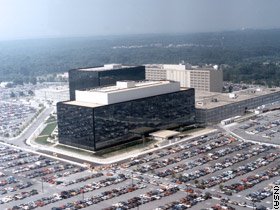Wednesday, May 31, 2006
Shakeup At NSA

The Deputy Director of the National Security Agency, who helped oversee the warrantless surveillance program and who allegedly helped grease the skids in obtaining NSA contracts for his former employer, is being replaced in a broader shakeup at the SIGINT agency.
The National Security Agency's second-highest official is being forced out by the agency's director, who is moving to install his own leadership team nine months into his tenure, current and former government officials said yesterday.
Lt. Gen. Keith B. Alexander, the NSA's director, announced in a memo to agency employees last week that Deputy Director William B. Black Jr. would be taking a new position in mid-August as the NSA's liaison officer to its British intelligence counterpart, the officials said.
The change is essentially a swap because Black's successor, John C. "Chris" Inglis, is now the agency's British liaison, a position often considered a final stop before retirement...
Alexander has been looking to replace Black since taking over in August but decided that it was smarter to delay the decision, said a former government official who spoke on condition of anonymity because of the sensitivity of personnel decisions.
"He has chosen this way of axing" Black, the former official said...
Inside the agency, Black was controversial because of his management style and because of the ties he forged between his former employer, Science Applications International Corp., and the NSA, former intelligence officials said. Black had served at the NSA for nearly four decades before taking a management job at Science Applications in 1997.
The company won a number of large contracts with the NSA after Black returned to the spy agency, including a $280 million contract to oversee the NSA's Trailblazer program, which sought to overhaul the way the NSA sifts and analyzes data. Trailblazer ultimately proved a flop and has been abandoned.
Black insisted that he make all major decisions on Trailblazer, and that approach was typical of his management style, which circumvented other senior NSA managers, a former senior intelligence official said.


